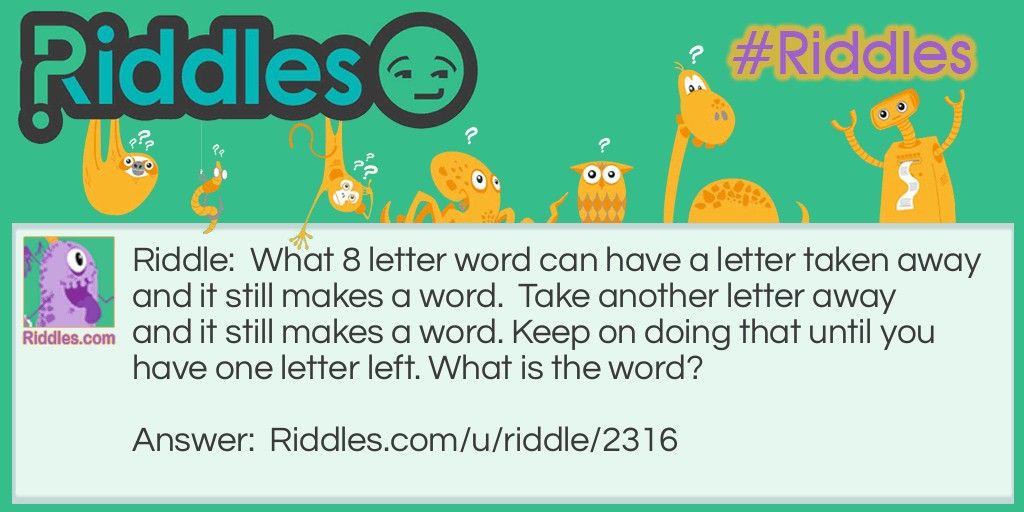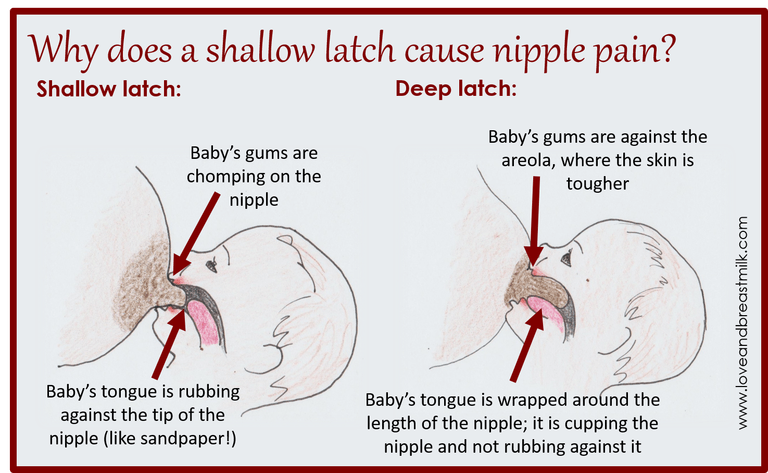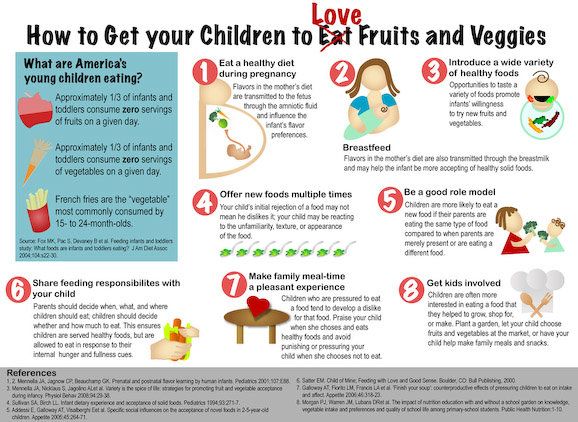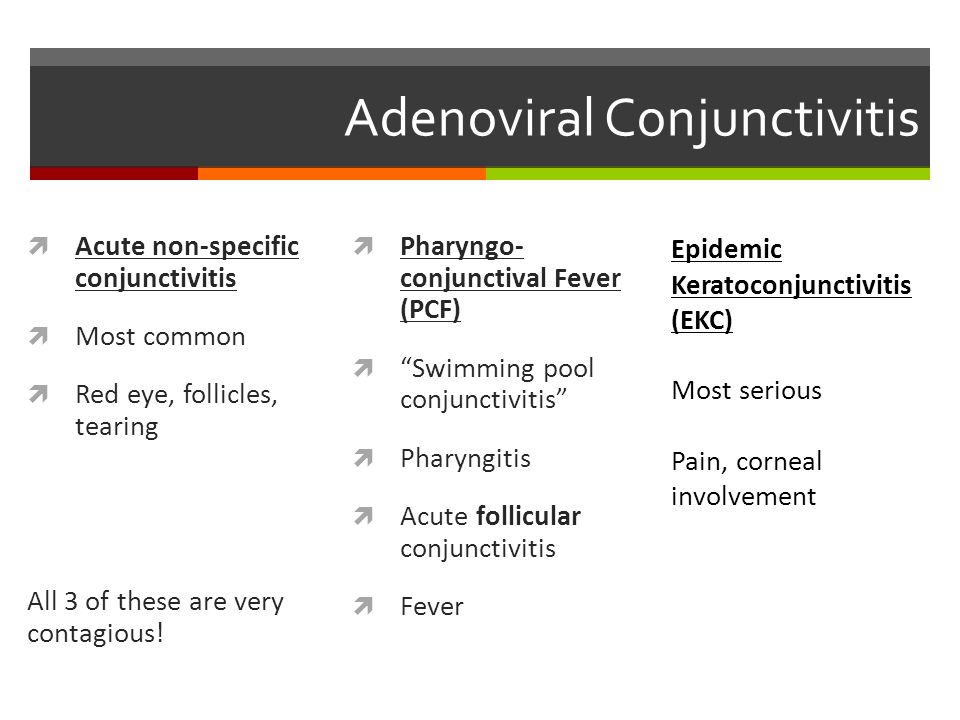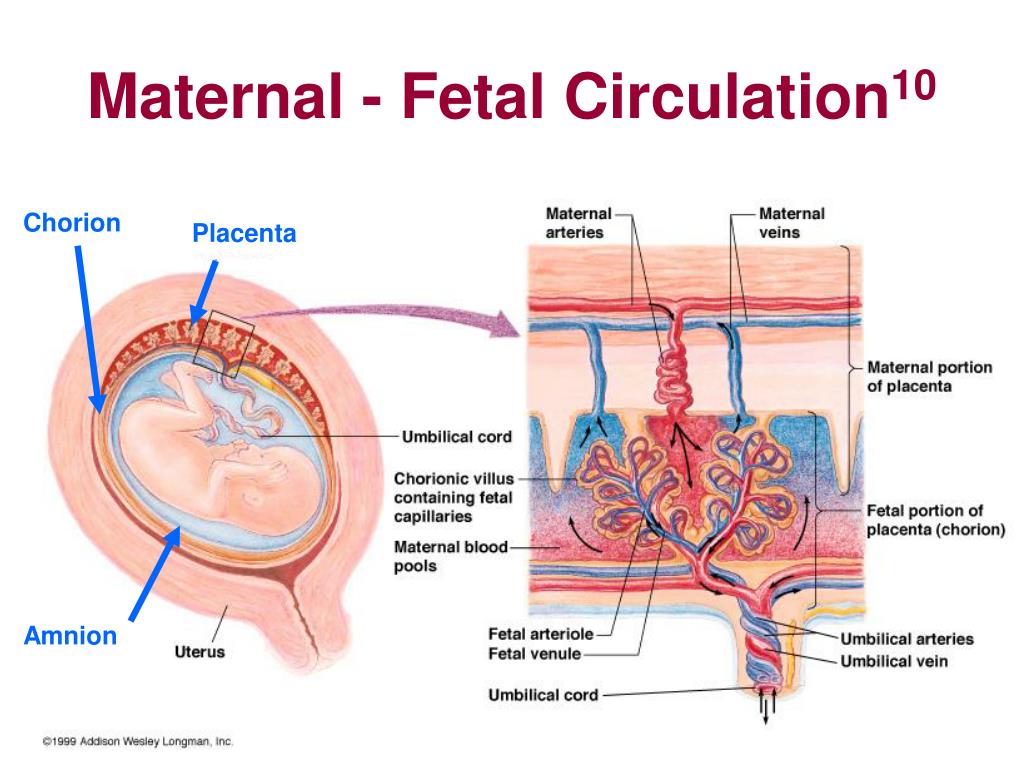Child support how much can they take
How much is child support?
If you’re preparing for divorce, you’re probably wondering – “How much is child support?”
If you’re preparing for divorce or merely curious, you want to understand how child support is calculated. You might be surprised by the amount deducted from your paycheck. You may also wonder what a reasonable cost is for monthly payments, and which parent spends the most.
We have answers to those questions here.
The court will consult the child support guidelines for their state to determine your child support obligation before making an official support order. Like any average, there are quite a few variables. Parents who are in a lower income bracket might not have enough gross income for paying child support, while others who are more well-off end up paying a higher monthly amount. Every state calculation takes into account your total monthly net resources.
Parent’s Pro-Rata Share
How much child support you pay also takes into account whether you are the non-custodial parent, how much income the other parent makes compared to you, and other factors such as whether you or the other parent will provide health insurance coverage for the children, and who will pay for educational expenses and other child care expenses.
The general rule is that the child support obligation is shared by both parents in proportion to their incomes, but there are a lot of other factors that go into how much each parent will actually pay.
Custodial Parent’s Income
In some cases, the custodial parent’s income can be imputed (or assumed) for child support purposes. This usually happens when the custodial parent is not working or is not working to their full potential. The court will look at factors like education and work history to determine how much gross income the custodial parent could be earning, and base child support on that amount.
Other Factors Affecting Child Support
There are other factors that might affect how much child support you pay, such as whether you have other children to support, whether you are paying spousal support (alimony), and your personal expenses. Some states also factor in the cost of living in each parent’s household when determining how much child support to award in a court order.
Example Child Support Calculation
In our example, the court starts by determining your “adjusted” gross income – this is your total income minus deductions for state taxes and business expenses – and multiplies it by the guideline percentage for the number of children involved.
For example: if your yearly salary is $15,000 and you have one child, you would be paying 17% of your income per year in child support–this comes out monthly to $212.50 or annually as $2,550.
Average Child Support Order
We have seen according to the 2010 Census Bureau Reports, the average monthly child support payment is $430. Again, this is just an average of the monthly amount of child support payments across the United States and should only be used as an estimate. Your situation is unique, and the amount the court determines will depend on your circumstances and financial resources.
To get a more accurate estimate of how much you might owe in child support, speak with an experienced family law attorney in your state. They will be familiar with how child support is calculated where you live and can help ensure you are paying (or receiving) the appropriate amount of support for your children.
They will be familiar with how child support is calculated where you live and can help ensure you are paying (or receiving) the appropriate amount of support for your children.
If you’re interested in an estimate of what your support payments should be, use our child support calculator.
And for more information on how you can better understand the child support laws and regulations in your state, visit our state resources section.
How Is Child Support Calculated in PA? | Pennsylvania Family Law Blog
blog home Child Support Calculating Child Support After a PA DivorceBy Sheryl Rentz on May 18, 2021
The amount of child support paid can be one of the most contentious issues after a divorce. Child support is meant to make sure both parents are contributing to their child’s well-being, but some parents may struggle to make payments after losing a job. Unfortunately, Pennsylvania family courts come down harshly on parents who miss payments, which is why it is important to make sure you pay on time and pay the right amount.
Who Has to Pay Child Support?
After a Pennsylvania divorce, child support is determined by the type of custody plan the parents have. Typically, the parent who does not have physical custody is required to pay child support to the custodial parent, but child support may also be required if the parents share custody. For example, if one parent has a higher income than the other, then she will be expected to pay child support to the other parent.
This is because both parents should contribute equally to their child’s development. If the child primarily lives with one parent, then that parent may have higher living expenses based on rent, meals, school, and other costs. Or, in joint custody situations, if one parent makes a lower wage than the other, then she may have difficulties taking care of the child when the child is in her care.
What Factors Do Family Courts Consider When Calculating Child Support?
Pennsylvania family courts consider four factors when calculating child support:
- Physical custody schedule: The parent who has the most overnight visits with the child (generally, the custodial parent) will receive child support.
 For non-custodial parents who have their child stay overnight 40% of the year, there may be a discount on child support.
For non-custodial parents who have their child stay overnight 40% of the year, there may be a discount on child support. - Number of Children: Child support is based on the number of children who will be receiving support and how custody is arranged for them.
- Monthly Income After Taxes: How much a parent has to pay in support is based on each parent’s monthly income after taxes and alimony payments.
- Additional Expenses for Raising a Child: If the child has a disability or another issue that can influence living expenses, these can be factored into the case.
How Much Will a Parent Have to Pay in Support?
In the state of Pennsylvania, child support is calculated by:
- Determining Each Parent’s Income: First, each parent’s monthly income needs to be determined. This includes salaries, hourly wages, rental incomes, investments, and any other forms of income. Each side should subtract the amount of taxes they will pay to get their monthly income.

- Example: Parent A nets $5,000 a month. Parent B nets $3,000 a month.
- Adjusting for Spousal Support/Alimony: If one parent is receiving alimony or spousal support, then that amount should be added to his/her monthly income. In addition, the parent who is paying alimony or spousal support should subtract those payments from his/her monthly income.
- Example: Parent A makes $5,000 a month but pays $500 in alimony. Parent A’s monthly income is $4,500 after alimony, while Parent B’s income is $3,500.
- Combining Both Incomes: Once you have the monthly incomes, add them together.
- Example: The combined monthly income is $8,000.
- Calculating How Much Each Parent Contributes: After you have the total monthly income for both parents, take each parent’s monthly income and divide it by the total income.
- Example: Parent A’s monthly contribution is $4,500/$8,000 or 56%.
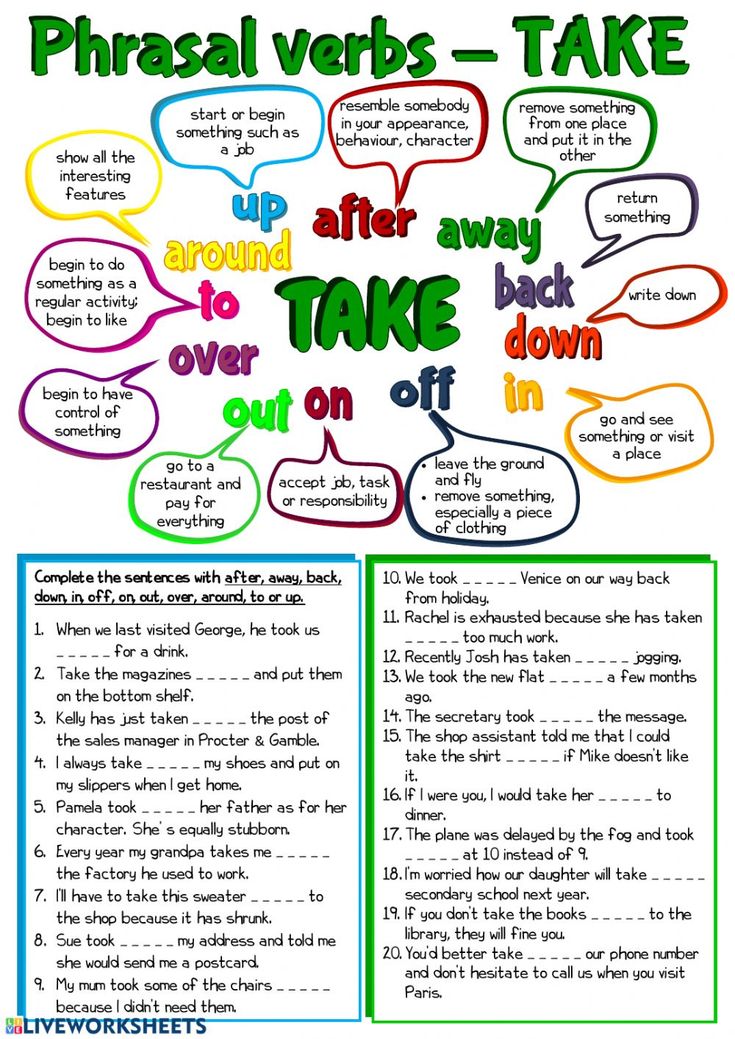 Parent B’s monthly contribution is $3,500/$8,000 or 44%.
Parent B’s monthly contribution is $3,500/$8,000 or 44%.
- Example: Parent A’s monthly contribution is $4,500/$8,000 or 56%.
- Reviewing the Child Support Schedule: Child support may be adjusted based on the number of children involved, according to the Pennsylvania Child Support Schedule. To determine the minimum amount of support, you should compare the number of children to the combined monthly income on the schedule.
- Example: There are two children involved in this case. For a combined monthly income of $8,000, basic child support is set at $1,859.
- Multiplying the Basic Child Support by the Contribution Percentage: If a parent is responsible for paying support, he should multiply his contribution percentage with the basic child support amount.
- Example: Parent A does not have physical custody and is responsible for paying child support. Support is calculated at 56% x $1,859 or $1,041.04.
- Example: Parent B does not have physical custody and is responsible for paying child support.
 Support is calculated at 44% x $1,859 or $817.96.
Support is calculated at 44% x $1,859 or $817.96.
- Adjusting for Additional Expenses: If there are any additional expenses, each parent may be responsible for paying them based on his or her contribution percentage. This can include daycare, babysitting, or athletic fees.
- For Example: Both parents have to pay for daycare, which is $500 a month. Parent A would pay 56% x $500 or $280. Parent B would pay 44% x $500 or $220.
If you need assistance estimating child support, you can also calculate it online through the PA Child Support Program.
Can Child Support Be Adjusted?
A parent may be able to modify the amount of child support when he or she experiences a change in living situations. For example, if the supporting parent loses her job, experiences a sudden injury, or is going through a bankruptcy, her attorney may be able to petition for child support payments to be paused or lowered based on her new income.
However, the opposite is also true. If one parent receives a pay increase and is more capable of providing for a child, then payments may be adjusted on both sides. For example, if the custodial parent receives a promotion at work, then the amount of support she receives can be lowered. Or, if a non-custodial parent gets a new job that pays more, then she may have to pay more in support.
This process can be incredibly complicated and difficult to comprehend at first. At the Law Offices of Sheryl R. Rentz, P.C., we encourage you to sit down with a Montgomery County family law attorney to discuss all of your options if you have an issue paying or receiving child support. Our lead attorney has more than 25 years of experience guiding parents through family court and helping them get modifications on support. We can sit down with you in a free consultation and answer your questions. Call the Law Offices of Sheryl R. Rentz, P.C., toll-free at (866) 290-9292.
2.2. Child support agreement
A child support agreement is a mutual agreement between parents regarding the payment of child support for minor children. Such an agreement determines the amount of payments, the frequency of transfers, and the method of withholding payments.
Such an agreement determines the amount of payments, the frequency of transfers, and the method of withholding payments.
In accordance with Art. 103 of the Family Code of the Russian Federation (hereinafter referred to as the RF IC) the amount of alimony paid under an agreement on the payment of alimony is determined by the parties in this agreement. At the same time, the amount of alimony established by an agreement on the payment of alimony for minor children cannot be lower than the amount of alimony that they could receive when collecting alimony in court. The amount of alimony is subject to indexation , which is carried out in accordance with the agreement on the payment of alimony (Article 105 of the RF IC). If the indexation procedure is not provided for in the agreement, indexation is carried out in proportion to the increase in the subsistence minimum for the corresponding socio-demographic group of the population established in the corresponding subject of the Russian Federation at the place of residence of the person receiving alimony, and in the absence of the specified value in the corresponding subject of the Russian Federation, in proportion to the increase in the value the subsistence minimum for the relevant socio-demographic group of the population, established as a whole for the Russian Federation (clause 1 of article 117 of the RF IC). nine0003
nine0003
The agreement on the payment of alimony also determines the methods and procedure for paying alimony (Article 104 of the RF IC). So, alimony can be paid:
in shares of earnings and (or) other income of a person obliged to pay alimony;
in a fixed sum of money paid periodically;
in a lump sum paid in cash;
· by providing property;
· in other ways as agreed. nine0003
A child support agreement may provide for a combination of different ways of paying child support.
An agreement on the payment of alimony is concluded in writing and is subject to notarization . Failure to comply with this requirement entails the nullity of the agreement (Article 100 of the RF IC). A notarized agreement on the payment of alimony has the force of a writ of execution. This means that if the obligated person evades the payment of alimony, the other party has the right, bypassing the court, to directly apply to the bailiff service for their enforcement. nine0003
nine0003
The provisions of the Civil Code of the Russian Federation governing the conclusion, execution, termination and invalidation of civil law transactions are applied to the conclusion, execution, termination and invalidation of an agreement on the payment of alimony (clause 1 of article 101 of the RF FC).
The maintenance agreement may be amended or terminated at any time by mutual agreement of the parties. The change or termination of the agreement on the payment of alimony must be made in the same form as the agreement on the payment of alimony itself, i.e. notarized (clause 2 of article 101 of the RF IC). nine0003
Unilateral refusal to fulfill an agreement on the payment of alimony or a unilateral change in its terms is not allowed (Clause 3, Article 101 of the RF IC).
In the event of a significant change in the financial or marital status of the parties and if an agreement is not reached on changing or terminating the agreement on the payment of alimony, the interested party has the right to apply to the court with a claim for changing or terminating this agreement. When deciding on the issue of changing or terminating an agreement on the payment of alimony, the court has the right to take into account any noteworthy interest of the parties (clause 4 of article 101 of the RF IC). nine0003
When deciding on the issue of changing or terminating an agreement on the payment of alimony, the court has the right to take into account any noteworthy interest of the parties (clause 4 of article 101 of the RF IC). nine0003
An agreement on the payment of alimony may be declared invalid by a court order at the request of the legal representative of a minor child or a guardianship and guardianship authority or a prosecutor in the event that the conditions for providing maintenance to a minor child significantly violate his interests, in particular in case of non-compliance with the requirements on the amount of alimony (Article 102 of the RF IC).
material maintenance paid by some family members for the benefit of others. Maintenance obligations are provided for parents and children, spouses and former spouses, as well as other family members. In particular, able-bodied adult children are obliged to support their parents, who have the right to demand alimony in case of disability and need for material assistance. Alimony is payable monthly, unless otherwise provided by law or the maintenance agreement. nine0003
Alimony is payable monthly, unless otherwise provided by law or the maintenance agreement. nine0003
- The Supreme Court of the Republic of Belarus
Issues related to the recovery of alimony are of great public interest and are always in the area of close attention of the judiciary. Conflict situations related to non-fulfillment of maintenance obligations are resolved in court. Consideration by the court of disputes on the recovery of alimony guarantees their quick and correct resolution, ensuring the protection of the rights and legitimate interests of children. The relevance of the topic raised is also due to the rather high number of disputes related to the recovery of alimony considered by the courts. nine0007
June 12 this year The program “Actual Microphone” of the First National Channel of the Belarusian Radio was devoted to this topic with the participation of the judge of the Judicial Collegium for Civil Cases of the Supreme Court of the Republic of Belarus Vera Borisovna Krugova.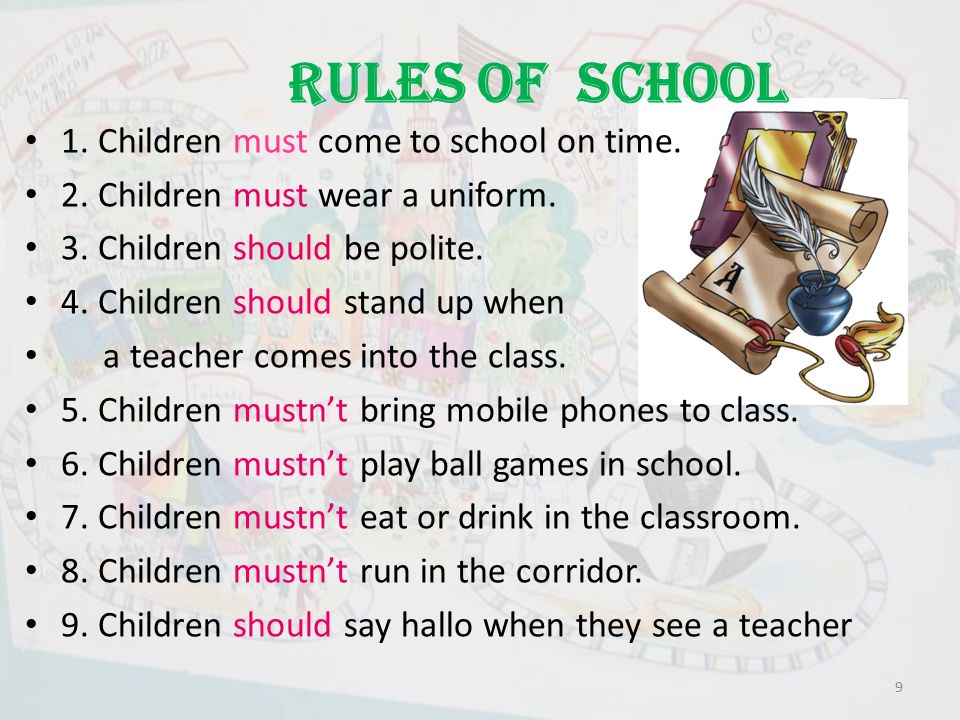
The program aroused great interest among the listeners, and we additionally publish an interview of the judge on such a socially important topic.
In the photo: Judge of the Supreme Court of the Republic of Belarus Vera Borisovna Krugova
- Vera Borisovna, tell us what is the procedure established by law when applying to the court for the recovery of alimony, can a citizen independently draw up an application without seeking legal advice?
- Alimony for minor children can be collected in order order and in order claim proceedings . Recovery of alimony in the order of writ proceedings is carried out without holding a court session and calling the parties. By order, alimony can be recovered if this is not related to the establishment of paternity (maternity) or the need to involve third parties to participate in the case. In this case, the judge issues a ruling on a court order, which is also an executive document. nine0003
nine0003
The statement of claim for the recovery of alimony is submitted in writing with a copy of the application to be sent to the defendant and must comply with the requirements of Art. Art. 109, 243 Code of Civil Procedure.
By the way, on the information stands of the courts and on our Internet portal, there are samples of the most frequently filed statements of claim, including those on the recovery of child support in the order of action proceedings and on the recovery of alimony in the order of writ proceedings.
- Is it necessary to pay a state fee when applying to the court for the recovery of alimony? nine0008
- No, you don't. In accordance with the requirements of the Tax Code, plaintiffs, applicants are exempted from paying the state fee when applying to the court with statements of claim and applications for initiating writ proceedings for the recovery of alimony. In this case, the obligation to pay the subsequent state duty rests with the defendant.
- As you know, one of the results of the judicial and legal reform was the creation of a unified system of bodies for the enforcement of court decisions and other executive documents. Where should I go to claim child support? Where does the competence of the court end and the bailiffs begin? nine0008
- Proceedings on the recovery of alimony ends with the issuance of a court decision (decision on the recovery of alimony, ruling on a court order on the recovery of alimony) by the court.
In cases of writ proceedings on the recovery of alimony, if the debtor does not object to the court within the prescribed period, the judge issues to the exactor a ruling on the court order indicating the date of its entry into force for presenting it for execution. Business action proceedings upon the application of the recoverer, on the basis of a court decision on the recovery of alimony, a writ of execution is issued.
At the stage of issuing a court order to the recoverer, the competence of the court ends, and after presenting it for execution to the enforcement authorities, the competence of bailiffs begins.
- What if, in the opinion of the alimony collector, the bailiff is inactive or does not take all measures to collect alimony from the debtor? nine0008
- I believe that before appealing against the inaction of a bailiff, it is worth familiarizing yourself with the materials of the enforcement proceedings. It is likely that the bailiff is doing everything possible for this. But if the materials of the enforcement proceedings confirm the inaction of the bailiff, then the alimony collector has the right to appeal against the inaction of the bailiff in the manner prescribed by law. As for the procedure for appealing against the inaction of a bailiff directly to the court, it is regulated by Article 360-3 of the Code of Civil Procedure. nine0003
- Can the parties voluntarily settle this issue without going to court, in addition to the court order for the recovery of alimony?
- Of course, it is possible. Alimony may be paid on a voluntary basis by a person obliged to pay alimony, or by deduction from wages at the place of work or at the place of receipt of a pension, allowance, stipend, or other payments. An employer paying wages, an organization that pays pensions, allowances, scholarships and makes other payments, are obliged, on the basis of a written application of the person paying alimony , to monthly withhold from his salary, pension, allowance, scholarship and other payments amounts of money of established amounts, taking into account the restrictions provided for by the legislative acts of the Republic of Belarus, and pay (transfer to an account, transfer according to mail at the expense of the person paying the alimony) no later than three days from the date of payment of wages, pensions, allowances, stipends and other payments to the person specified in the application. nine0003
An employer paying wages, an organization that pays pensions, allowances, scholarships and makes other payments, are obliged, on the basis of a written application of the person paying alimony , to monthly withhold from his salary, pension, allowance, scholarship and other payments amounts of money of established amounts, taking into account the restrictions provided for by the legislative acts of the Republic of Belarus, and pay (transfer to an account, transfer according to mail at the expense of the person paying the alimony) no later than three days from the date of payment of wages, pensions, allowances, stipends and other payments to the person specified in the application. nine0003
- What if the alimony payer changes jobs?
- When a citizen, from whom alimony is withheld upon application, moves to another job or, for example, changes his place of residence, alimony is withheld on the basis of a newly submitted application . At the same time, alimony cannot be withheld on the basis of an application, if the total amount to be recovered on the basis of an application and executive documents exceeds 50 percent of the earnings and (or) other income due to the debtor, from which alimony is withheld, and also, if the debtor is recovered by a court order alimony for children from another mother, with the exception of the case of payment of alimony for minor children. nine0007
nine0007
So, if alimony is paid for minor children, then on the basis of an application, alimony may be withheld and if the total amount of deductions on the basis of such an application and executive documents exceeds 50 percent of the earnings and (or) other income of the person obliged to pay alimony, but not more than 70 percent. That is, if the employee pays child support for minor children, which must be indicated in the application, the amount of alimony withheld can be more than 50 percent of earnings, but not more than 70 percent. nine0007
At the same time, it should be noted that for able-bodied parents, the minimum amount of alimony per month should be at least 50 percent for one child, 75 percent for two children, 100 percent for three or more children of the living wage budget on average per capita.
- Vera Borisovna, please explain how long it takes for alimony to be collected and is it possible to collect alimony for the past time? nine0007 At the same time, alimony may also be collected for the past , but not more than for the previous three years, if the court establishes that before applying to the court, measures were taken to obtain funds for maintenance, but due to the evasion of the person obliged pay alimony, from their payment, alimony was not received.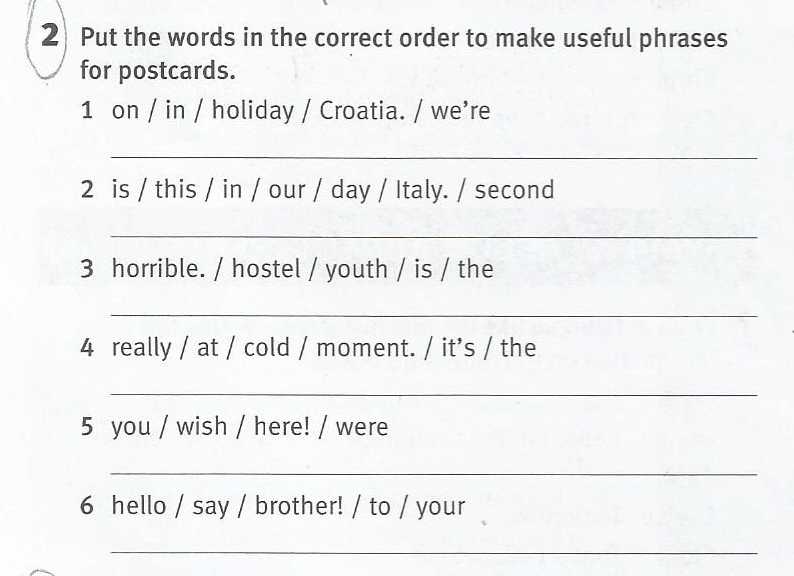
- What can you say about the timing of consideration of cases of this category?
- Cases on claims for the recovery of alimony must be considered by the court of first instance no later than one month from the date of acceptance of the application. When considering cases by writ , a ruling on a court order for the recovery of alimony is issued within three days from the date of receipt of the application to the court. This means that by writ, alimony can be collected more quickly than in a lawsuit, however, writ procedure is only permissible if this is not related to the establishment of paternity (maternity) or the need to involve third parties to participate in the case. nine0007
- How to collect alimony if the parent who is obliged to pay them lives and works outside of Belarus? Where can I apply for alimony?
- In this case, the plaintiff (collector) with an application for the recovery of alimony can apply to the court both at his place of residence and at the place of residence of the defendant (debtor).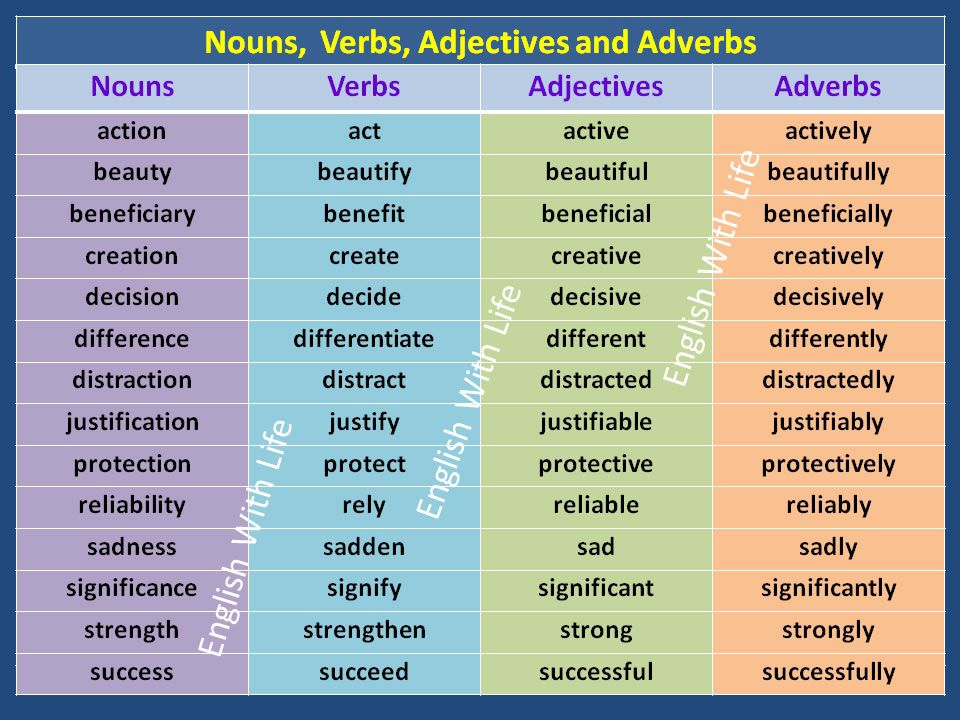
The jurisdiction of the courts of the Republic of Belarus in civil cases in disputes involving foreign citizens, stateless persons, foreign legal entities, as well as in disputes in which at least one of the parties resides abroad, is determined by the legislation of the Republic of Belarus, unless otherwise established by international treaties of the Republic of Belarus or a written agreement of the parties. nine0007
For example, regarding relations between the Republic of Belarus and the Russian Federation on the issue of alimony, the Convention on Legal Assistance and Legal Relations in Civil, Family and Criminal Matters applies, according to which cases on maintenance obligations fall within the competence of the court of the Contracting Party, in the territory in which parents and children have a permanent joint residence, and in the absence of a permanent joint residence of parents and children, the court of the Contracting Party of which the child is a citizen or, at the request of the claimant for maintenance obligations, the court of the Contracting Party in whose territory the child permanently resides. nine0003
nine0003
It should be noted that on the issue of collecting alimony, the plaintiff can apply both to the Belarusian court at the place of his residence, and to the Russian court - at the place of residence of the defendant.
It is also important that on March 3, 2015, the Republic of Belarus and the Russian Federation signed an Agreement on the Procedure for the Mutual Execution of Judgments in Cases of Recovery of Alimony, by virtue of which no special procedure is required for the recognition and execution of court decisions. nine0007
As for other states, in each specific case, one must proceed from the terms of an international agreement (if any).
- But what should a parent do if he does not have information about the place of residence of the other parent?
- A claim against a defendant whose place of residence is unknown or who does not have a place of residence in the Republic of Belarus may be brought at the location of his property or at his last known place of residence in the Republic of Belarus.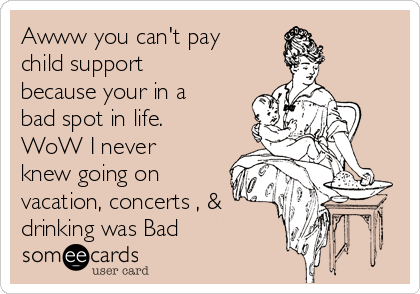 If the place of residence of the defendant in claims for the recovery of alimony is unknown, the judge is obliged to announce the search for the defendant through the territorial bodies of internal affairs. In this case, the court may stay the proceedings on the recovery of alimony.
If the place of residence of the defendant in claims for the recovery of alimony is unknown, the judge is obliged to announce the search for the defendant through the territorial bodies of internal affairs. In this case, the court may stay the proceedings on the recovery of alimony.
- If the child's birth certificate does not contain information about the father or if the child is not recognized as the father, where should the mother go to collect alimony?
- Mutual rights and obligations of parents and children (including the obligation of parents to support minor children) are based on the origin of children, certified in the prescribed manner. nine0003
The descent of a child from a father who is not married to the mother of the child is established on the basis of a joint application of the father and mother of the child for registration of the establishment of paternity, submitted to the civil registration authorities.
If the parents of the child are not married to each other and the civil registration authorities do not submit applications for registration of the establishment of paternity, and also if information about the father of the child is entered in the birth certificate at the direction of the unmarried mother, then paternity can be established in court.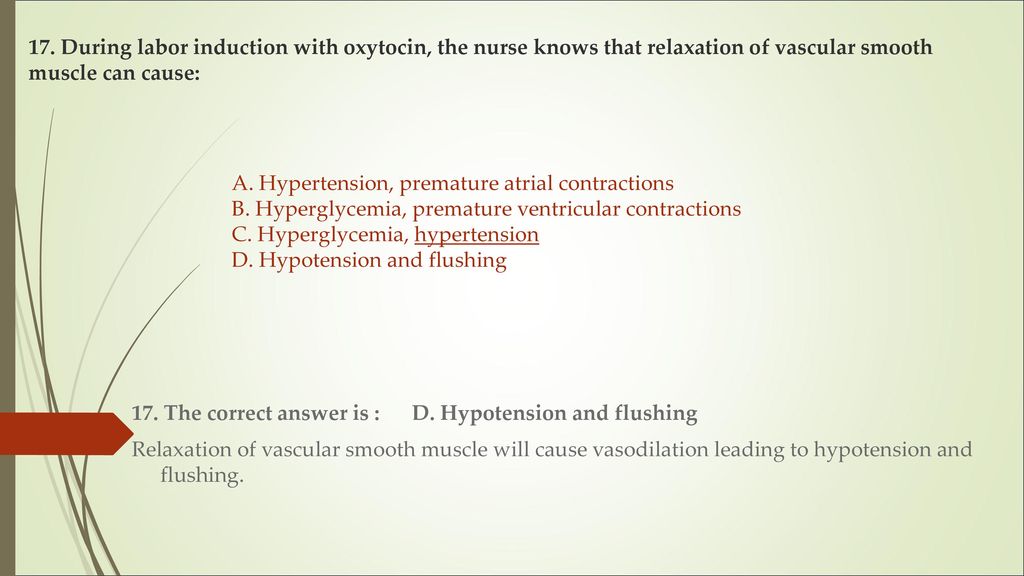
Mutual rights and obligations between the father and the child, if the father and mother of the child are not married, arise from the moment the information about him as the father is entered in the record of the birth of the child in the prescribed manner, or from the moment the court decision on establishment of paternity, with the exception of the obligation to maintain, which may be imposed from the moment of filing a claim for the establishment of paternity.
Establishment of paternity in court is carried out at the request of one of the parents or guardian, guardian of the child, as well as the child himself upon reaching the age of majority.
Thus, if in the child's birth certificate information about the father is indicated from the words of the unmarried mother, then the question of establishing paternity should first be raised, and then - on the recovery of alimony. The plaintiff has the right to state such requirements in one statement of claim. In this case, alimony can be collected from the moment of filing a claim to establish paternity. nine0007
In this case, alimony can be collected from the moment of filing a claim to establish paternity. nine0007
For reference: with the decision in 2018, 20,625 cases on the recovery of alimony were considered, of which 20,227 cases (98%) were satisfied (in 2017, 20,670 cases on the recovery of alimony were considered, of which 20
- Quite often there are situations when a child lives in the summer or for another long time with a parent who is obliged to pay alimony. alimony to pay for this period?0008
- Of course, a parent of a child who is obliged by a court order to pay child support must, in accordance with the requirements of the Code of Civil Procedure, execute the court decision. At the same time, the parents of the child in this case, already within the framework of enforcement proceedings, can conclude an amicable agreement, which is approved by the court, on the issue of the fulfillment of maintenance obligations by the father during the specified period.
- What to do in cases when alimony is forcibly collected from a parent, since he did not pay money for the maintenance of the child, but it turns out that at the same time he provided the child with food and clothes. Does this count towards child support? nine0008
- Let's analyze the provisions of Chapter 11 of the Code of the Republic of Belarus on Marriage and Family (CoBS). They point out that alimony is usually a cash payment. The possibility of paying alimony in a non-monetary form, for example, by transferring property to the ownership of a child, can only be provided for by a notarized Agreement on the payment of alimony or a marriage contract. I want to note that a parent who is obliged to pay alimony has the right to provide his child with material maintenance and more than the amount determined by the court. nine0003
- Continuing on the subject of the Prenuptial Agreement, Alimony Agreement and Children Agreement. What is the procedure to be followed in order to enter into a Marriage Agreement, Support Agreement and Children Agreement? How often do parents conclude them, because many of the parents do not even know about such an opportunity provided by law?
- Issues of maintenance, determination of the place of residence of children and other issues related to the upbringing of children can be settled by spouses in the Marriage Agreement, Agreement on Children. In the Agreement on the payment of alimony, only questions about the amount, methods and procedure for paying alimony can be resolved. nine0003
In the Agreement on the payment of alimony, only questions about the amount, methods and procedure for paying alimony can be resolved. nine0003
A marriage contract is concluded in writing and is subject to notarization. If the Marriage Agreement contains conditions that are or may become the basis for the emergence, transfer, termination of rights, restrictions (encumbrances) of rights to real estate, then also requires mandatory state registration of the Marriage Agreement in the organization for state registration of real estate, rights to it and transactions with him. The legislator makes the same requirements for the Agreement on the payment of alimony. Spouses may conclude an agreement on children in accordance with the procedure established by the Code of Civil Procedure for amicable agreements upon dissolution of marriage in court. nine0003
The legislator does not exclude the possibility of specifying in the Marriage Agreement, Agreement on the payment of alimony, Agreement on children the payment of alimony in a fixed amount of money, in basic values, as a percentage of earnings.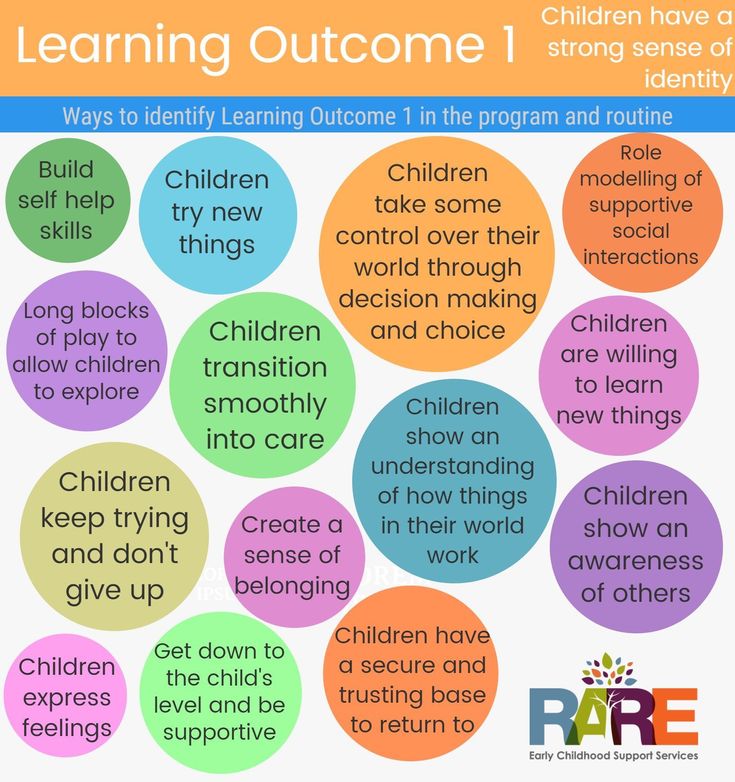
An agreement on the payment of alimony cannot be concluded if the alimony is paid in accordance with the Marriage Agreement or Agreement on Children concluded in accordance with the procedure established by the legislation of the Republic of Belarus, as well as a court decision that has entered into force, which resolves the issues of paying alimony for minors and (or) disabled adult children in need of assistance (part 7 of article 91 KoBS).
- Can any amount of maintenance for minor children be determined by the parties in the Marriage Agreement, Alimony Agreement, Agreement on Children?
- The terms of the Marriage Agreement, the Agreement on the payment of alimony or the Agreement on children must not violate the rights and legitimate interests of other persons, and must not contradict the legislation of the Republic of Belarus. That is, the amount of alimony specified in the Marriage Agreement, the Agreement on the payment of alimony or the Children's Agreement must not be less than the amount established by Article 92 of the Code of Civil Procedure, from which the courts proceed when collecting alimony in court.
For reference: according to the Ministry of Justice of the Republic of Belarus, in 2018 notaries of the republic certified 3,923 marriage contracts and 191 agreements on the payment of alimony.
- The issue of the possibility of paying alimony by transferring real estate to the child's ownership is topical. How does it work in practice?
- Legislator allows the possibility of paying alimony by transferring real estate to the ownership of the child. nine0007 Such a procedure may be fixed in the Marriage Agreement or in the Agreement on the payment of alimony. If the alimony is collected by the court as a percentage of earnings or in a fixed amount of money or in basic units, then the issue of paying alimony for the future by transferring real estate to the child’s ownership can be resolved by the child’s parents by mutual agreement within the framework of enforcement proceedings by concluding a settlement agreement which is subject to court approval. - There are cases when, according to several court decisions, child support was awarded from the defendant from different mothers or fathers, and in total the amount of child support exceeds the amount established by law. In this situation, is it possible to reduce the amount of alimony? - Indeed, the legislator allows the possibility of reducing the amount of alimony by the court if the parent obliged to pay alimony has other minor children who, when collecting alimony, turned out to be less financially secure than the children receiving alimony, and also if such parent is a disabled person of 1 or 2 groups. In the event of such circumstances, the parent paying child support for minor children under a court order has the right to file a claim for a reduction in the amount of child support established by the court and collected for the maintenance of children. nine0003 It is also important that in exceptional cases the court may release a parent who is a disabled person of group I or II from paying alimony, as well as reduce the minimum amount of alimony levied from an able-bodied parent who, for objective reasons, cannot pay them within the prescribed limits. - What financial support can a mother who is on leave to care for a child under the age of three receive from the child's father if the parents do not live together? nine0008 - A parent caring for a common child up to the age of three years and in need of financial assistance has the right to receive maintenance from the other parent who has the necessary means for this, if they are married, and retains this right in case of divorce. In this case, the spouse in need of financial assistance and taking care of the child has the right to file a lawsuit against the second spouse (former spouse) for the recovery of funds for his maintenance until the child reaches the age of three. The amount of the amount awarded will depend on the need of the plaintiff, as well as take into account the financial and marital status of the other spouse who is obliged to provide material support, his obligations to other persons whom he is also obliged by law to help. If the conditions that are the basis for receiving maintenance have disappeared, and also if the divorced spouse receiving maintenance funds enters into a new marriage, then the spouse paying such funds by a court decision has the right to apply to the court to release him from their further payment . - Is a parent obligated to support their child after they turn 18? - The obligation to support children after they reach the age of 18 is enshrined in legislation in relation to disabled adult children in need of assistance. Also, the Marriage Agreement or the Agreement on the payment of alimony may provide for the payment of alimony for children even after they reach the age of majority (for example, until the child receives the first higher education after graduation from school). nine0003 - Vera Borisovna, could you explain what procedure a claimant must follow in order to directly execute a court decision after a court decision on the recovery of alimony has been issued? - The exactor must obtain from the court that issued the court order on the recovery of alimony, a writ of execution or a ruling on a court order, and apply with it to the enforcement authority with an application to initiate enforcement proceedings. - Parents often evade paying child support. What responsibility is provided by the legislation of the Republic of Belarus for parents evading the maintenance of their children? - For parents evading for more than three months during a year from paying, by court order, funds for the maintenance of minors or adults, but disabled and in need of assistance to children, criminal liability is provided. In particular, the sanction of Part 1 of Art. 174 of the Criminal Code provides for punishment in the form of community service or correctional labor for up to two years, or arrest, or restriction of liberty for up to three years, or imprisonment for up to one year. In the event of the commission of the specified act by a person previously convicted of evading the maintenance of children, Part 3 of Art. 174 of the Criminal Code provides for punishment in the form of correctional labor for a term of one to two years, or arrest, or restriction of liberty for a term of one to three years, or imprisonment for a term of up to two years. - Summarizing all of the above, it is necessary to once again emphasize the importance of the topic discussed today and the increased interest in it on the part of the public. And how important is it for the judiciary? nine0008 - Consideration of cases related to child protection is one of the priorities of the courts. When considering marriage and family disputes, including the recovery of alimony, the courts take comprehensive measures aimed at reconciling spouses, preserving the family and, most importantly, protecting the rights and interests of children. nine0003
nine0003  sizes.
sizes.  nine0003
nine0003  It should also be noted that if a party under the Marriage Agreement, the Agreement on the payment of alimony, the Agreement on children does not fulfill its obligations to pay alimony, the exactor has the right to apply to the court for the issuance of a writ of execution and present it to the enforcement authority for the enforcement of alimony. nine0003
It should also be noted that if a party under the Marriage Agreement, the Agreement on the payment of alimony, the Agreement on children does not fulfill its obligations to pay alimony, the exactor has the right to apply to the court for the issuance of a writ of execution and present it to the enforcement authority for the enforcement of alimony. nine0003  nine0003
nine0003 